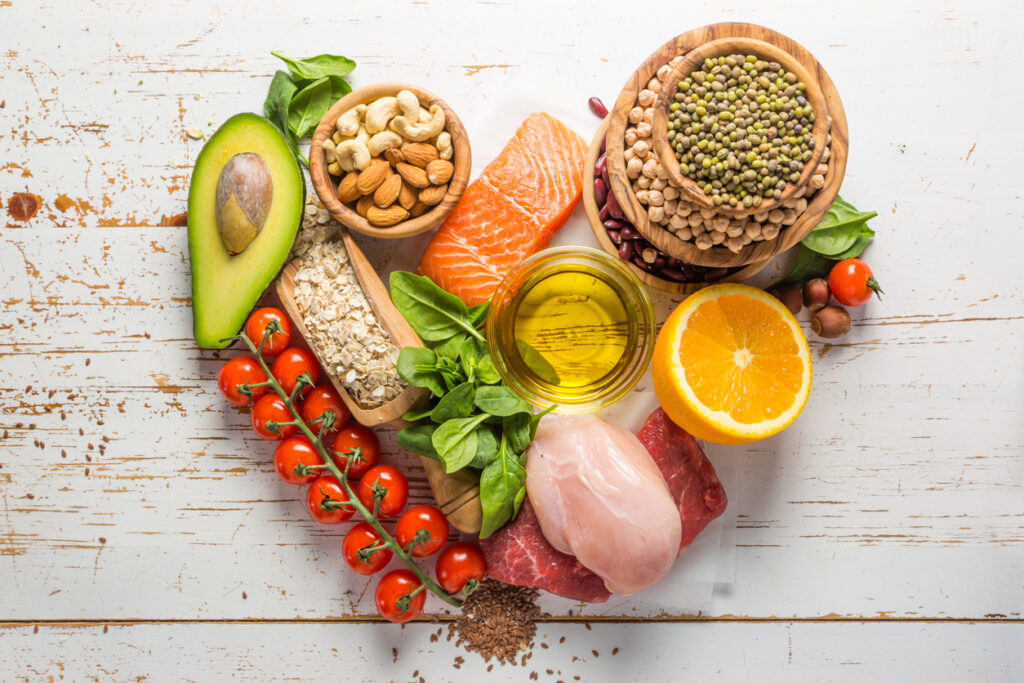As we embark on a new year, the world of food and nutrition continues to evolve, driven by shifting consumer preferences, emerging scientific research, and global trends. From plant-based innovations to technological advancements, the food industry is constantly adapting to meet the demands of a health-conscious and environmentally-aware population. In this comprehensive guide, we’ll explore the top 10 food and nutrition trends anticipated to shape the culinary landscape in 2021, providing insights into what’s on the horizon for our plates and our health.
Plant-Based Revolution
The plant-based movement has been gaining momentum in recent years, and it shows no signs of slowing down in 2021. Consumers are increasingly opting for plant-based alternatives to traditional animal products, driven by concerns about health, sustainability, and animal welfare. From plant-based meats and dairy alternatives to innovative plant-powered dishes, the plant-based revolution is reshaping the way we eat and think about food.
Functional Foods and Nutraceuticals
Functional foods and nutraceuticals, which offer specific health benefits beyond basic nutrition, are expected to continue to gain popularity in 2021. Consumers are seeking out foods and supplements fortified with ingredients like probiotics, prebiotics, antioxidants, and adaptogens to support immune health, gut health, cognitive function, and overall well-being.
Personalized Nutrition
Advances in technology, such as genetic testing and artificial intelligence, are driving the rise of personalized nutrition solutions. By analyzing individual genetic profiles, health goals, and lifestyle factors, personalized nutrition programs can provide tailored dietary recommendations to optimize health outcomes and prevent chronic diseases.
Sustainable Eating
Sustainability has become a central focus in the food industry, with consumers increasingly concerned about the environmental impact of their food choices. In 2021, expect to see continued efforts to promote sustainable eating practices, such as reducing food waste, supporting regenerative agriculture, and choosing foods with minimal carbon footprints.
Immune-Boosting Ingredients
In the wake of the COVID-19 pandemic, there’s a heightened awareness of the importance of immune health. Consumers are seeking out foods and ingredients rich in immune-boosting nutrients like vitamins C and D, zinc, and antioxidants to support their immune systems and overall well-being.
Alternative Sweeteners
As consumers become more mindful of their sugar intake, alternative sweeteners are gaining traction as substitutes for traditional sugar. Natural sweeteners like stevia, monk fruit, and erythritol are being used to sweeten products while reducing added sugars and calorie content.
Clean Label Movement
The clean label movement, which advocates for transparency and simplicity in food labeling, is expected to continue to influence consumer preferences in 2021. Consumers are increasingly seeking out products with clean labels, free from artificial additives, preservatives, and synthetic chemicals.
Regenerative Agriculture
Regenerative agriculture practices, which focus on improving soil health, sequestering carbon, and promoting biodiversity, are gaining recognition as a sustainable solution to address climate change and food insecurity. Look for more products and brands prioritizing regenerative farming practices in 2021.
Mindful Eating
Mindful eating, the practice of cultivating awareness and presence while eating, is gaining traction as a holistic approach to healthy eating. By paying attention to hunger cues, practicing gratitude, and savoring the sensory experience of eating, mindful eaters can develop a healthier relationship with food and their bodies.
Global Flavor Exploration
As consumers become more adventurous in their culinary pursuits, expect to see a rise in global flavor exploration in 2021. From regional spices and condiments to traditional cooking techniques and flavor profiles, there’s a growing appreciation for the diversity and complexity of cuisines from around the world.
FAQs
How can I incorporate more plant-based foods into my diet?
You can start by incorporating more fruits, vegetables, legumes, whole grains, nuts, and seeds into your meals. Experiment with plant-based recipes and swap out animal products for plant-based alternatives whenever possible.
Are there any risks associated with personalized nutrition programs?
While personalized nutrition programs can offer valuable insights into individual dietary needs, it’s essential to consult with a qualified healthcare professional or registered dietitian before making significant changes to your diet based on genetic testing or other personalized recommendations.
What are some sustainable eating practices I can adopt?
You can reduce your environmental impact by choosing locally sourced foods, reducing food waste, supporting sustainable farming practices, and opting for plant-based meals more often.
How can I boost my immune system naturally?
Consuming a balanced diet rich in fruits, vegetables, whole grains, lean proteins, and immune-boosting nutrients like vitamins C and D, zinc, and antioxidants can help support a healthy immune system. Regular exercise, adequate sleep, stress management, and staying hydrated are also important factors in immune health.
Are alternative sweeteners safe to consume?
Generally, alternative sweeteners like stevia, monk fruit, and erythritol are considered safe when consumed in moderation. However, it’s essential to be mindful of any potential side effects and to choose products with minimal added sugars overall.
How can I practice mindful eating in my daily life?
You can practice mindful eating by slowing down and savoring each bite, paying attention to hunger and fullness cues, eating without distractions, and cultivating gratitude for the nourishment your food provides.
What are some ways to explore global flavors at home?
You can explore global flavors by trying out recipes from different cuisines, experimenting with new herbs, spices, and condiments, and learning about traditional cooking techniques and flavor combinations from around the world.
Conclusion
In conclusion, the top 10 food and nutrition trends on the horizon for 2021 reflect a growing emphasis on health, sustainability, and culinary diversity. From plant-based innovations and personalized nutrition to sustainable eating practices and global flavor exploration, these trends offer exciting opportunities to make more conscious and informed food choices that support our well-being and the health of the planet. By staying informed and embracing these trends, we can navigate the evolving food landscape with confidence and creativity, enriching our lives and nourishing our bodies for years to come.

